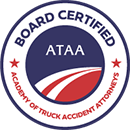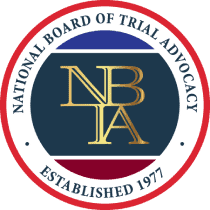Nevada Trucking Regulations
Truck drivers make up one-third of total highway traffic in the state of Nevada. Truck drivers, motor carriers, freight forwarders, independent contractors, and others are all subject to the regulatory authority of the Nevada Department of Transportation (NDOT), the Nevada Transportation Authority (NTA), the Motor Carrier Division of the Nevada Department of Motor Vehicles, and the Nevada Department of Public Safety Highway Patrol Division.
Any motor carrier or driver that wishes to operate intrastate (within the state) or interstate (across multiple states) must adhere to current Nevada trucking regulations. Below are some highlights of trucking regulations and rules in our state.
Nevada Brake System Requirements
When traveling at 65 mph, a fully loaded tractor-trailer will take approximately 500 feet to come to a full stop after the driver applies the brakes. This is a commonly cited fact that relies on the idea that the truck’s brakes are in good operable condition. If brake pads are worn down or haven’t been serviced regularly, the actual stopping distance could be much longer, creating the potential for a completely avoidable accident.
Nevada state law regulates brake performance on large CMVs, including tractor-trailers, buses, and other big vehicles. Under NRS 489D.255, the following vehicles must have a 43.5% braking force as a total percentage of gross vehicle or combination weight:
- Single-unit vehicles with a gross vehicle weight rating (GVWR) of 10,000 pounds or less
- Combination of two-axle towing vehicle and trailer (tractor-trailer) with gross trailer weight of 3,000 pounds or less
- Buses with any number of axles
- All possible combinations of driveaway-towaway vehicles
Tests for vehicle deceleration and stopping distances are performed on smooth, dry surfaces that are free of debris and other loose materials. This means that stopping distances in anything other than ideal conditions could be much longer.
Repair of CMVs Following a Roadside Violation
If a truck driver is pulled over for a safety violation or if a police officer notices a mechanical issue during the course of a traffic stop, the attending officer will issue a citation to the driver, a notice of correction requiring the problem be fixed, or both. This requirement is in regard to:
- Brakes,
- Tires,
- Mechanisms of safety, and
- Other equipment.
In the event that an officer believes that a CMV is either unsafe or “poses an immediate threat to the life of the driver or any other person upon a public highway,” they can require that the driver immediately take the vehicle to the nearest garage or auto shop.
Exceptions to this include trucks that are transporting perishable goods or wet concrete. If at the time of the traffic stop the delivery destination of the vehicle is within 15 miles, the attending officer cannot delay the driver for a period of time any longer than 15 minutes before allowing the driver to complete its delivery. However, once it has reached its destination and unloaded its cargo, the officer may then require that the vehicle be taken for immediate repairs.
Permits for Amber Flashing Lights
Nevada State Highway Patrol (NHP) is responsible for issuing permits for the use of flashing amber lights on CMVs. Use of flashing amber lights is strictly prohibited without a permit.
NHP issues permits for the use of mounted flashing amber lights on the following vehicle types:
- Public utility vehicles
- Tow trucks
- Vehicles engaged in activities that can create a public hazard
- Coroner vehicles
- Civil Air Patrol rescue unit vehicles
- Authorized Sheriff’s Jeep squadron vehicles
- Funeral procession escort vehicles
- Food or beverage vendor vehicles
- Private patrol officer vehicles
CMVs like tractor-trailers, delivery trucks, passenger buses, cement mixers, and dump trucks that use mounted flashing amber lights without a permit do so in violation of current Nevada state law.
When a Nevada Trucking Regulation Causes an Accident
The physical, financial, and emotional damage caused by a single truck accident can be long reaching, impacting victims for months, years, or even a lifetime. To ensure that you receive the total amount of compensation to which you are rightfully entitled, our Super Team of trucking injury lawyers will work tirelessly to identify all factors that contributed to your accident. We’re prepared to assist with any trucking accident in Nevada, including those related to broken regulations. Two specific cities we have experience in include Las Vegas and Reno.
Now is the time to take action. State law affords only two years to meet with a lawyer, build a strong case, and file a claim. The sooner we meet, the sooner we can begin helping you on your path to recovery. To talk with a lawyer free of charge, call or fill out our online form.






